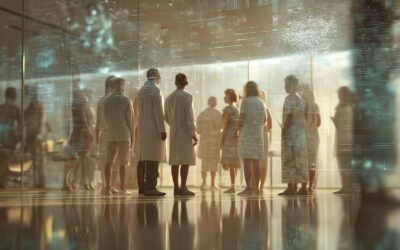Technology
Patient Data, Patient Power: The Next Revolution in Trust
In the early twentieth century, banks faced a crisis of confidence. Customers entrusted their savings to institutions they could not see, unable to verify what happened behind the teller’s counter. Only when banks began issuing regular statements—showing balances,...
Beyond HART: Capitalism’s Safety Net for AI
In 1929, optimism outpaced judgment. The exuberance of an unregulated market collapsed under its own weight, leaving investors frightened and society disillusioned. What restored faith in capitalism were not slogans about innovation but the patient construction of...
AI’s 1929 Moment: Building HART for Healthcare Safety
In the final days of the Roaring Twenties, optimism ruled the markets. Factories were booming, credit was cheap, and new technologies — radio, automobiles, and electrification — were transforming life at a dizzying pace. Everyone, it seemed, wanted a share of the...
Human Oversight and Conscience in Healthcare AI
Healthcare has long understood that safety depends on process, not perfection. Checklists, timeouts, and structured handoffs exist to prevent the predictable human errors that arise in complex environments. These principles—refined through aviation safety models and...
Governance Over Fear: Building Safe, Transparent Healthcare AI
When new ideas challenge long-held medical beliefs, fear often delays progress. In the 1980s, researchers Barry Marshall and Robin Warren were ridiculed for suggesting that a bacterium, Helicobacter pylori, caused most ulcers. Years passed before the medical community...
Adoption Curves: Managing Change in Healthcare AI
Change has always been uncomfortable. Clinicians trained for decades to master their craft often find new technologies disruptive, slowing down well-established routines. Patients, too, hesitate when asked to manage their health differently, even when change promises...
Trust in Healthcare AI: Lessons for Leaders
Healthcare has always struggled to balance innovation with trust. In the early 1990s, as personal computers became affordable and the Internet became widespread in hospitals, electronic health records (EHRs) promised a revolution. Paper records were hard to access,...
Who Should Lead AI in Healthcare?
This summer, I explored how artificial intelligence is reshaping healthcare—and why its most significant potential will remain untapped unless we change not only how we use it, but who leads its deployment. AI is no longer theoretical. It is here, embedded in...
Debunking 5 Common Myths About Healthcare AI
Despite the breathless headlines and lofty promises, artificial intelligence in healthcare is not a magic bullet. It is not sentient, intuitive, or even particularly wise. It is a tool—and like any tool, its effectiveness depends entirely on how it is designed,...








